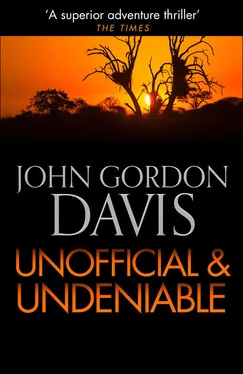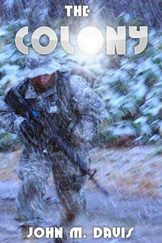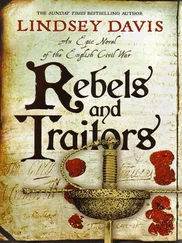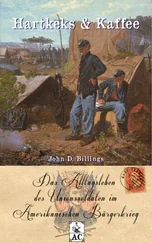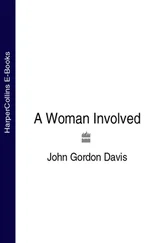Dupont smiled carnivorously. ‘When you say “sir” you’d better sound as if you mean it, old boy.’
Harker sighed angrily. Dupont looked at him icily, but decided to let it go. ‘Major, if you land in trouble the CIA will see that you get out of it. They’re as keen on this job as we are. And they assure me that when you’ve reconnoitred the killing ground you’ll see it’s a cinch.’
Harker snorted. Dupont glanced at his wristwatch and said, ‘Okay, tell me about Bigmouth.’
Harker groaned angrily. He said, ‘I’ve reviewed everything Clements got from her apartment yesterday, her notebooks, her disks. Here’s my report.’ He put his hand in his pocket, withdrew an envelope and tossed it in front of his boss.
‘And?’
‘And,’ Harker said, ‘she’s harmless. There is nothing of significance that we don’t know already. Apart from her war photography she’s no different from all the other bleeding hearts in the anti-apartheid movement.’
Dupont pushed the report aside and said grimly, ‘She’s not fucking harmless, she’s a troublemaker. All those demonstrations and fund-raising, all the crap she writes. It’s not just a movement, it’s an industry – all these “Free Mandela” T-shirts and crap. Did she tell you about this book she’s supposed to be writing?’
‘No,’ Harker said.
‘When are you seeing her again?’
‘I can meet her again through the yacht club.’
Dupont jabbed his finger. ‘Well, get on to it. And find out about this book – tell her you want to read it, you’re a fancy publisher. And if it looks like getting published you publish it. And kill it. Tell her you’re printing thousands of copies but print a few hundred and bury the fucking thing …’
It was touch-and-go whether Harker refused to obey orders concerning the assassination, resigned his commission in the army, kissed goodbye to Harvest House and tried to make a new career for himself at the age of thirty-eight. He had no moral compunction about killing General Sanchez and Brigadier Moreno of the Cuban army – he had been killing their soldiers for years on the battlefield, as they had been trying to kill him. He wasn’t even much concerned about his own skin: the CIA with their wheels within wheels would cover his tracks if he left any and if he still got in the shit they would pull the right strings to fish him out – unless it suited them to let him take the rap, but he didn’t seriously think they would do that. Nor was it fear of danger; he had penetrated behind enemy lines to reconnoitre targets over terrain much more dangerous than an empty farmhouse in the tranquil American countryside. Nor was it fear of the poverty that might ensue if he resigned in protest: true, he would lose Harvest House, the job of publisher he really enjoyed, but he had a good reputation in New York and he could surely get another position in publishing. Nor was it fear of his own army that worried him: sure, if he resigned in protest they would watch him like hawks, he would be a dead man if he dared spill the beans – but Harker would not spill any beans. No, it was murdering those three ANC officials that worried him.
They were civilians, not soldiers. Okay, they were going to be plotting sabotage within South Africa, and that made them murderers – five years ago ANC agents had planted a car-bomb outside the South African air force headquarters in Pretoria and killed and injured many people, most of them civilian passers-by. That was despicable, but on the other hand wasn’t the air force headquarters a legitimate military target for the ANC, hadn’t the bomb blown out all the windows and a fucking great hole in the wall? Sure it was despicable to blow up civilians, but hadn’t the explosion impressed the shit out of South Africans, delivered the message that apartheid was a dangerous, bloody business? And then had come the murder of Dulcie September; the whole world had had no doubt that South Africa had done the job, and Harker now had no doubt that the CCB was responsible. The thought had sickened him. Christ – soldiers were legitimate targets, but unarmed civilians who had committed no wrong other than espouse a political cause opposed to your political masters’ credo stuck in his craw. Jesus, he’d hoped such action would never be required of him.
‘ They’re plotting murder ,’ Dupont had said.
Yes, most probably, Harker admitted to the passing twinkling lights beyond the Amtrak dining saloon carrying him back to New York with the suitcase of explosives the CIA had provided; yes, most probably they would be plotting murder, but how do we know for sure? We have only the CIA’s word for it. Perhaps they’re discussing something like children’s nutritional aid, or the ANC’s next tactic around the corridors of the United Nations which Harker would hear all about from his salesmen anyway …
‘Of course they’re saboteurs,’ Dupont had shouted. ‘Why else are they meeting Sanchez and Moreno?’
Yes, they must be, but he wished he knew their names so he could try to verify the fact, and he wished he had more than the CIA’s word for the purpose of the meeting.
It took him a long time to go to sleep that Monday night, staring out of the train window, watching the night lights of America slip by.
The reconnaissance was easy.
Harker did not do it himself because his CCB cover as a publisher would have been blown if he had been caught. He sent one of his senior salesmen, Derek Clements, the very tough American who had been a US Marine and a mercenary in the Rhodesian army. He was one of the best soldiers Harker had known, the right sort to have on your side in a tight corner: amongst other military accomplish-ments he was a tracking and survival expert, an instructor in hand-to-hand combat, an expert in demolition work. Clements had been in the CCB longer than Harker, who had inherited him from Dupont. His front-business in America was a car-hire firm much patronized by United Nations officials: his rank and pay scale in Military Intelligence was that of lieutenant. But he was really staff-sergeant material, one of the breed of men who kick ass and make an army function.
Harker drove Clements to Long Island that Tuesday afternoon in a Hertz car rented in a false name. They located the area of the farm, then went to eat at a roadhouse. When darkness fell they synchronized watches and drove back to the area. Clements was dropped off at the roadside. He disappeared into the dark, and Harker drove on.
The farmhouse was surrounded by woods and, as Dupont had promised, it was deserted. There wasn’t another dwelling for over a mile. Clements approached carefully. There was no light. He observed the old clapboard house for half an hour, looking for signs of life, then he crept to the back door and let himself in with the keys Dupont had given to Harker.
And, yes, though the place was empty, it was in use: the kitchen was clean, there was water in the taps. Clements went through it slowly, shining a shaded torch. There were a few cans of food in the small pantry and some Cuban rum. The living room was the only suitable place for a meeting: there was a dining table surrounded by eight chairs. The bookshelves were empty, there was no paper anywhere. Upstairs there were three bedrooms holding ten narrow beds, made up with blankets but no sheets. All the cupboards and drawers were bare. There was one used bar of soap in the small bathroom but nothing else. All the floors were made of wood, covered with a scattering of worn mats.
Clements went back downstairs. He began to go through the house again systematically, carefully noting every detail, the position of the furniture, of the mats. Then he let himself out by the kitchen door, and crept back through the woods. At ten o’clock exactly Harker’s headlights appeared down the road. Clements emerged from the darkness, and Harker picked him up.
Читать дальше
